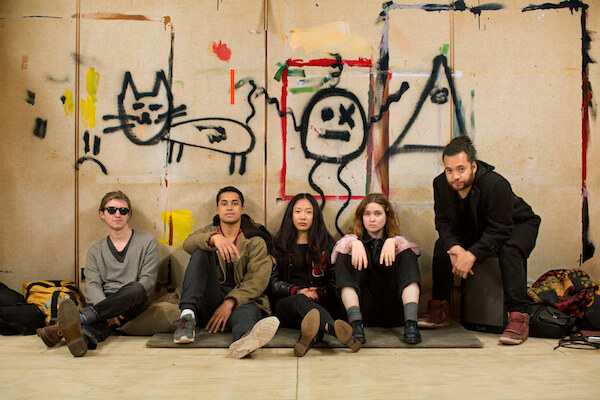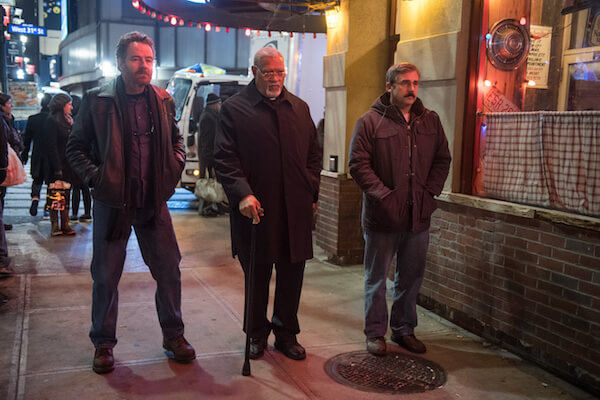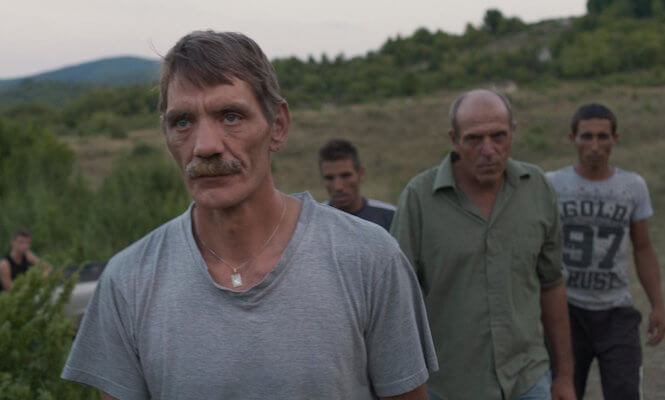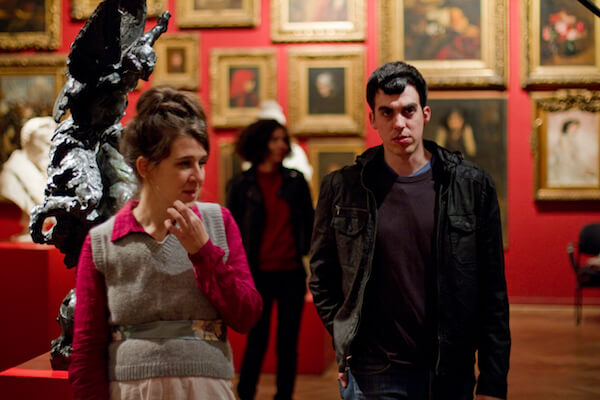Kieran Charnock, James Rolleston, Michelle Ny, Alice Englert, and Scotty Cotter in Alison Maclean’s “The Rehearsal.” | MATTHEW KLITSCHER/ MONGREL INTERNATIONAL
It’s hard to draw a dividing line where the media starts to exploit people, especially in an age where people are willing to objectify themselves for a shot at fame. I was startled to see a recent documentary about the Syrian civil war include ISIS snuff videos in their entirety, a step no other American film or news broadcast has taken. Although the exact situation still seems somewhat unclear, cameras on the reality show “The Bachelor in Paradise” apparently caught a rape in progress.
New Zealand director Alison Maclean’s narrative film “The Rehearsal” explores the difficulty of making a theater piece about statutory rape.
From the first 20 minutes of Maclean’s film, one would never guess where the film ultimately winds up. It initially evokes Argentine director Matías Piñeiro’s sunny depictions of female college students researching Shakespeare and pursuing complicated love lives. Maclean shows her students engaging in difficult acting exercises by day and getting stoned and watching films by the late queer (in every sense of the word) Soviet director Sergei Parajanov by night.
Alison Maclean’s midday in the garden of good and evil
The exercises are shown in full, and they’re quite difficult, especially under the frankly cruel tutelage of teacher Hannah (Kerry Fox.) Stanley (James Rolleston) is forced to imitate his father — seen in one scene, where his main characteristic seems to be a fondness for tasteless jokes about pedophilia — talking about him. While Hannah pushes Stanley to his limits, he thrives.
The film is filled with cryptic blackout scenes involving tennis. Eventually, their meaning becomes clear, as they allude to the other main narrative thread of “The Rehearsal.” Very early on, we see TV news reports about a middle-aged tennis star arrested for having sex with an underage girl and hear the acting students talk about this case. It turns out that the girl and her family are part of their social circle. Inspired by this incident, the theater troupe decides to create a play around it. “The Rehearsal” shows many non-narrative images of it, including a memorable scene of actors with their faces hidden by shirts and tennis rackets dangling like testicles below their crotches.
Stanley has a direct and rather dubious connection to the case beyond his participation in the play: the 18-year-old boy is dating Isolde (Ella Edward), the 15-year-old sister of the girl with whom the tennis star committed statutory rape.
Maclean uses a widescreen frame with characters often pushed to its edges. In her images of the acting class, she’s careful to alternate between shots of one actor and the whole group of students watching him. There are few nighttime scenes; the Auckland locations look as sunny and inviting as the Argentina of Piñeiro’s films. She evokes a student bohemia that starts off looking extremely attractive but by the film’s halfway point reveals the potential for abuse and tragedy. The problem with her structure is that for a long time “The Rehearsal” doesn’t really seem to know where it’s going. While Stanley is the main character, it’s an ensemble piece, and Maclean proves less adept at managing her large cast than a director like Richard Linklater.
“The Rehearsal” is a somewhat deceptive film. At first, it seems to deal with the themes and subjects that are central to it somewhat glancingly. I wonder if it would be more powerful were it blunter and shorter. Perhaps the set-up about a seemingly carefree group of actors learning their craft is necessary for the ethical dilemmas of the final third to have as much as impact as they do.
The age difference between Stanley and Isolde is not as extreme as the one between the tennis star and her sister, but Stanley could still face potential criminal persecution, as Hannah points out to him, making his participation in a play about male abuse of power over teenage girls rather hypocritical. He finds a way out, but it’s not one that leads to a satisfying ending for himself, the theater troupe, or the film itself.
And while I’m sure that’s Maclean’s exact point, it still leads “The Rehearsal” to close on a march into the void. Although I understand everything it’s saying, the ending still feels like a betrayal of the sense of youthful possibility expressed in the film’s first half.
THE REHEARSAL | Directed by Alison Maclean | Mongrel Media | Opens Jul. 7 | Metrograph, 13 Ludlow St., btwn. Hester & Canal Sts. | metrograph.com



































